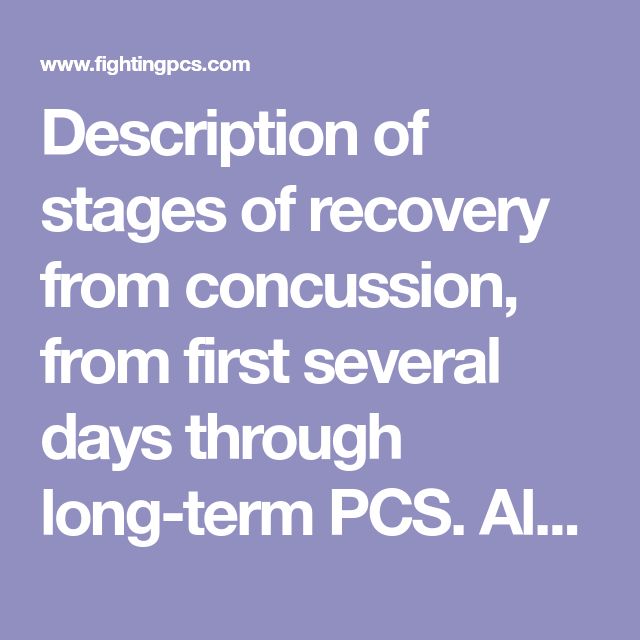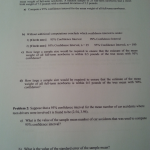Concussions are a serious medical condition that can have significant impacts on one’s health and daily life. Understanding the 6 stages of concussion recovery is crucial for anyone who has suffered a concussion or is caring for someone who has. This guide will walk you through each stage, providing clear and specific details to help you navigate the recovery process effectively.
Concussions are a type of traumatic brain injury caused by a bump, blow, or jolt to the head. They can occur in various scenarios, from sports injuries to car accidents. Recovery from a concussion is a multi-stage process that requires careful management to ensure a full and healthy return to normal activities. In this article, we will explore the 6 stages of concussion recovery, offering insights into what each stage entails and how to manage it effectively.
Key Takeaways
Understanding the 6 stages of concussion recovery is essential for effective management:
- Stage 1: Immediate Post-Injury – Rest and initial assessment.
- Stage 2: Initial Recovery – Limited physical and cognitive activity.
- Stage 3: Gradual Return to Activity – Light activities and monitoring symptoms.
- Stage 4: Return to School/Work – Resuming daily routines with accommodations.
- Stage 5: Return to Play – Reintroducing physical exercise and sports.
- Stage 6: Full Recovery – Resuming all activities without restrictions.
Detailed Explanation
Involving Parties?
Concussion recovery involves a team of healthcare professionals, including doctors, neurologists, physical therapists, and sometimes psychologists. Family members and caregivers also play a crucial role in supporting the patient through their recovery journey. Each individual’s recovery plan may vary based on the severity of the concussion and their personal health history.
Timeline of Events
The timeline for recovering from a concussion can vary widely. However, a general outline based on the 6 stages of concussion recovery is as follows:
- Stage 1: Immediate Post-Injury – This stage occurs within the first 24-48 hours post-injury. The patient should rest and avoid any physical or cognitive strain.
- Stage 2: Initial Recovery – Typically lasts from 2-5 days post-injury. Limited activity is recommended, and symptoms should be closely monitored.
- Stage 3: Gradual Return to Activity – Usually starts around the first week post-injury. Light activities such as short walks or simple cognitive tasks are introduced.
- Stage 4: Return to School/Work – This stage can begin around the second week post-injury, with accommodations as needed.
- Stage 5: Return to Play – Depending on the individual, this stage may start a few weeks post-injury, with a gradual reintroduction to physical exercise and sports.
- Stage 6: Full Recovery – The final stage, where the individual resumes all activities without restrictions. This can take several weeks to months, depending on the severity of the concussion.
Impact on Personal and Professional Lives

A concussion can significantly impact an individual’s personal and professional life. During the early stages, the need for rest and limited activity can interfere with daily routines, work responsibilities, and social interactions. As recovery progresses, individuals may need to make adjustments to their schedules and activities to accommodate their healing process. Employers and educators should be aware of the necessary accommodations to support the individual’s recovery.
Reactions
Concussions, especially in sports, have garnered significant media attention. High-profile cases in professional sports have raised awareness about the importance of proper concussion management. Public reactions often emphasize the need for better safety protocols and increased research into concussion prevention and treatment. Media coverage has played a crucial role in educating the public about the potential long-term effects of concussions and the importance of following the 6 stages of concussion recovery.
Future Plans
Advancements in medical research continue to improve our understanding of concussions and their recovery process. Future prospects include the development of more effective diagnostic tools, personalized recovery plans, and enhanced safety measures in sports and other high-risk activities. Ongoing studies aim to provide deeper insights into the long-term effects of concussions and how to mitigate them. Patients can look forward to more tailored and effective recovery strategies as research progresses.
Understanding the 6 stages of concussion recovery is essential for anyone affected by this condition. From immediate post-injury rest to a full return to normal activities, each stage requires careful management and support from healthcare professionals and loved ones. By following these stages and staying informed about the latest advancements in concussion research, individuals can achieve a successful and healthy recovery.
Remember, every concussion is unique, and recovery times can vary. Patience and adherence to medical advice are key to ensuring a full and healthy return to daily life.
Stay informed, stay safe, and prioritize your health as you navigate the journey of concussion recovery.









